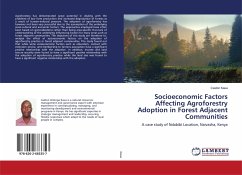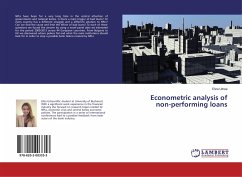Agroforestry has demonstrated great potential in dealing with the problems of low farm production and increased degradation of forests as a result of human-induced pressure. The adoption of agroforestry has however not been very successful due to the assumption of the underlying socio-cultural and economic factors. The approaches employed have often been based on generalizations rather than being area-specific thus lack of understanding of the underlying influencing factors for many areas such as forest adjacent communities. The objectives of this study are therefore to: analyze the effect of socioeconomic factors on the adoption of agroforestry practice in forest adjacent communities. The study found out that while some socioeconomic factors such as education, contact with extension service, and membership to farmers association have a significant positive relationship with the adoption. In addition, income and land tenure security were found to have a significant positive relationship with the adoption of agroforestry practice while the land size was found to have a significant negative relationship with the adoption.
Hinweis: Dieser Artikel kann nur an eine deutsche Lieferadresse ausgeliefert werden.
Hinweis: Dieser Artikel kann nur an eine deutsche Lieferadresse ausgeliefert werden.








